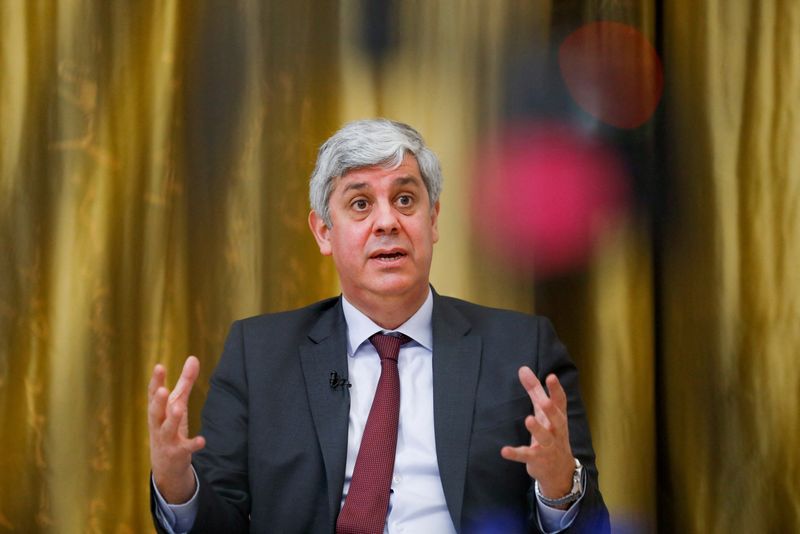By Sergio Goncalves and Andrei Khalip
LISBON (Reuters) - Further consolidation of Portugal's banking sector is inevitable, European Central Bank member Mario Centeno told Reuters on Wednesday, calling "remarkable" the recent progress the country's banks have made on strengthening capital and reducing risk.
Analysts have said that Portuguese banks should bet on M&A operations to achieve better competitive conditions, despite the five largest players' owning 80% to 85% of banking assets.
Centeno said the system had made "remarkable progress" in recent years as banks strengthened their capital and improved risk profiles, while non-performing loans (NPLs) dropped to levels practically in line with the European average.
"After this reinforcement, consolidation of the banking system (in Portugal) and strengthening of its institutions is absolutely crucial and it is inevitable that the system, the market, will face that," Centeno, who is also governor of the Bank of Portugal, said in an interview.
While the COVID-19 pandemic and the current crisis had postponed this process, "we will do it, as always, with great tranquillity," he added.
Portugal's banks are still scarred from a debt crisis and a spike in NPLs after the 2010-13 recession. They have since reduced NPLs to a total of 11.4 billion euros ($11.85 billion) in June 2022 from a peak of 50 billion euros in June 2016, according to the latest Bank of Portugal data.
The NPL ratio for Portugal's lenders was 3.4% of total credit in June, versus 17.9% in mid-2016.
"Although I am very satisfied with the evolution...there is no point in resting, we have to challenge ourselves," Centeno said.
"It is important that this maturation takes place with a continued reinforcement of the institutions in their size, their capitalisation and mainly in their capacity to respond to the challenges of digitalization, climate action, because this all goes through the banks' balance sheets."

The largest bank is state-owned Caixa Geral de Depositos; followed by Millennium bcp; Santander (BME:SAN) Portugal; Novo Banco, which emerged from the collapsed Banco Espirito Santo in 2014 and is controlled by U.S. private equity fund Lone Star; and BPI, owned by Spain's CaixaBank.
($1 = 0.9623 euros)